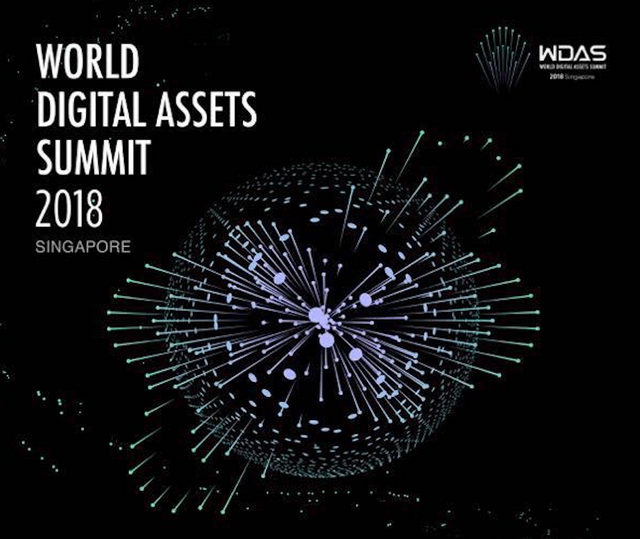
On May 1–3, 2018 (Beijing Time), the 2018 World Digital Assets Summit is about to be stately held in Singapore, with the theme of “new forms of economy brought about by digital assets”, to jointly explore the impact of “tokenomics” on traditional economies and the brand-new business patterns brought about by blockchain technology. Ruff Chain will be showcased with RUFF Token at this conference, showing the value of circulation and use of RUFF Token in the field of IoT blockchain.
The themes involved at this WDAS Summit include:
Blockchain VC (blockchain financing and IPO)
Extensibility (what is the route to achieve blockchain extensibility?)
Community (as a key part of successful blockchain project, how should the community develop?)
Privacy (how should the privacy of blockchain in real applications be guaranteed?)
Exchanges (strategies of exchanges, and their untold stories?)
Trading of crypto-currency (is the market of crypto-currency really so efficient?)
Decentralized exchange (how should we understand the decentralized exchange?)
It is learned that, the future scenarios of Ruff Chain is not only suitable for sending enterprise-level value data onto the chain, but also for sending massive value data, such as mass consumption and finance, onto the chain. However, the precondition of data going onto the chain is that, the equipment can be accessed to the network, so that a large amount of IoT data can be collected, which involves the link of IoT bottom layer access.
With the experience in implementation of Ruff OS IoT OS and IoT access under business scenarios, Ruff Chain has now realized IoT technical solutions in many fields, such as industries, energy, agriculture, internet of vehicles and smart city, and helped numerous enterprises to undergo IoT transformation, thus providing the bottom-layer IoT access capacity for data to go onto the chain after implementation of Ruff Chain.
Well, how should IoT be deeply integrated with blockchain indeed? Previously, when the concept of blockchain just emerged, the initial reaction of most people was that, blockchain should be implemented in the field of consumer finance. Nonetheless, the best scenario is actually the integration of blockchain with IoT. However, finance and IoT are not in parallel, since IoT itself also includes the finance business. For example, as to a sharing-car rental firm, prior to the project launch, it needs a one-off input of a large sum of cash for purchasing cars for rental, and then recovers the costs from un-fixed cash flows. During this process, the car rental firm itself needs to bear huge financial pressure and cash flow as well as consumer loyalty, not likely to actively popularize its car rental platform. By contrast, if blockchain is utilized for transformation, at first, the car rental firm may rent cars from the car manufacturer, and then send value data, such as settlement and rental between consumers and cars, onto the chain, so that the car manufacturer may transparently acquire the transaction data generated from consumers’ car rental. Besides, the car rental firm may issue its own sidechain toke at the parent blockchain of Ruff Chain, enabling consumers to be token holders. In this way, the car rental firm and the consumers may form a relationship of community of common interests, since the development of rental firm may promote the appreciation of token and consumers may also make efforts to jointly develop and strengthen the ecosystem of car rental platform.
Throughout the transaction of real rights, both consumers’ data and the car rental firm’s data will be openly and transparently displayed on the public blockchain. Smart contracts will automatically control the time of use and physical scope etc of cars. Consumers and car firms transact “rights to use things” on a point-to-point basis, eliminating data inconsistency, and time and communication costs, effectively reducing resources waste, and improving efficiency and trust. Such a way is actually a mode of “resources securitization”, adding to fund liquidity. The technical innovation during this process can only be achieved with IoT plus blockchain: IoT is for dividing and swapping real rights, while blockchain is for addressing liquidation of real rights and maintaining data consistency.
Indeed, digital assets will bring about thorough conversion and transformations to our life, and more expectations are placed on it in the field of IoT. For more information about this conference, please check our official public account of Ruff Chain from time to time!
On May 1–3, Ruff Chain awaits your arrival at WDAS, Singapore!